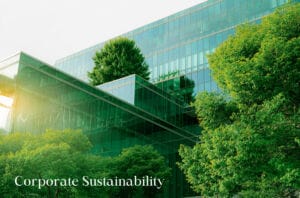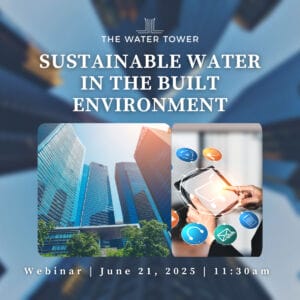May 24, 2024

Act as ONE
Cindy Wallis-Lage, Retired Sustainability and Resilience Executive and Former Executive Director, Sustainability and Resilience for Black & Veatch
Drought, flood, water equity, food scarcity, failing infrastructure, societal strife…
These words and many more conjure the images of the situations we are facing around the globe due to climate change. Beyond the visible is the unseen/unknown damage that our planet has endured.
Climate change has significant impact on our most precious resource – Water. Communities see changes in rainfall – too much water or too little water. The intensity of storms exceeds our infrastructure’s capacity to manage the water without flooding damage. The lack of rainfall creates a shortfall for existing communities to meet water demands and impacts their economic survival. Our environment is compromised due to changes in water quality, temperature shifts and the interruption to ecosystems. And the most vulnerable populations pay an even bigger price due to social and water inequity issues.
Water touches everyone on our planet through health, environment, culture, religion and recreation. It unifies people and it divides them due to its foundational role in creating sustainable and resilient communities. Water integrates industries, businesses, and residents in a way no other element does IF people work together and Act as ONE.
Across all of our planet's population, our water infrastructure, or the lack thereof, is at risk due to changing climates yet simultaneously contributing to climate change with our current practices. It is the Ying and the Yang for our water world and requires a different approach. Taking decisive action, working together, planning and operating systems holistically, investing in innovative and creative strategies to mitigate our impacts, partnering with other sectors, and driving regulatory/policy/governmental action are all actions we can take now to stem the tide of climate change and realize a future that is healthy, sustainable, resilient, and equitable.
A new water economy requires modern tools and technology to address old problems of resources and cost, and to connect with new partners without our communities to create new solutions. This comes in the form of adapting existing technologies and adopting new technologies that let us drive cross-community beneficial solutions. Transforming also means embracing digital technology such that we are smarter regarding the real-time “health” of our infrastructure: performance, effectiveness, remaining life, and connecting infrastructure – water, power, communications - in ways not done in the past such that our systems Act as One. Some solutions will deliver incremental change, and some will create disruptive change: both are necessary.
Every decision we make has an impact. Every minute we wait compounds the problem. Now is the time to Act as One and make a difference in our communities. Our children and future generations depend on us.
Act as ONE - The Private Sector's Role
Ralph Erik Exton, VP and Chief Marketing Officer at Grundfos Water Utilities

Cindy’s article provides a powerful foundation for the reason we should also take note and Act as One to protect our water resources. As someone who has spent the vast majority of their career working for large corporations, I understand firsthand the impacts caused by corporate water use – either in direct production of our products or through the spaces we inhabit, and its indirect impact to our communities.
Corporate sustainability initiatives have gone a long way to address the low hanging “drops” that can be found in water conservation initiatives. But the future of corporate sustainability lies in technology innovation. Innovation that results in the capture of wastewater, groundwater seepage, and stormwater to address water use – reducing costs associated with water rates and making positive impacts on regional water supplies.
More than 80% of the world's wastewater flows back into the environment without being treated or reused, according to the United Nations. In the global south, about 90% of sewage is discharged untreated directly into water bodies. The increase of natural events is adding a lot of pressure on old infrastructure. Climate change worsens the frequency and severity of these events, increasing risks to the environment and public health.
Technological solutions with sensors, IOT and AI are available, revolutionizing sewer management, allowing utilities to receive not only alarms, but insights that offer greater understanding of their systems and the ability to resolve blockages. Proactive maintenance and overflow prevention are enabled through solutions anticipating network needs.
On the groundwater and irrigation side, it’s alarming the rate and pace of aquifer depletion worldwide. Overpumping can have other risks beyond diminishing the supply of water. It can also contaminate aquifers in ways that make the remaining water unsafe or undrinkable. For example, in coastal areas, overpumping can accelerate “saltwater intrusion,” the movement of ocean water into the freshwater aquifer, making it first unappetizing, then unhealthy.
Grundfos is committed to be part of a journey we call ‘Sustainable Aquifer Management’, and this will involve the investment and resources on digital technologies so that we have a deeper understanding of what's going on in the aquifer. The goal is to have our customer better informed about what to do and when to do, driving sustainable decisions.
I encourage you, as corporate sustainability leaders, to think about your company’s direct impact on water. How much water does your production use and what is the cost of the water? Are you treating water before discharging it? Do you spend money moving water, when that water could be treated and used on site? Technologies are ever-advancing and no matter your water challenge, there is an innovative solution that can provide meaningful results and positive impacts to your corporate water footprint.
In the spirit of Acting as One, I’m offering the services of The Water Tower to you, specifically this newsletter and virtual webinars, as a vehicle to learn about technologies and use cases that will result in meaningful steps toward true water resource sustainability.
Corporate Responsibility Resources
 The Water Tower Global Innovation Center (TWT) brings together public and private sectors of the water industry, side by side with academia and nonprofits, to tackle the sector's greatest challenges through practical research, technology innovation, workforce development, and industry engagement.
The Water Tower Global Innovation Center (TWT) brings together public and private sectors of the water industry, side by side with academia and nonprofits, to tackle the sector's greatest challenges through practical research, technology innovation, workforce development, and industry engagement.
To support our mission of providing innovative solutions for the water industry, TWT works with forward-thinking companies focused on building-scale technologies to help facilities meet their corporate environmental sustainability goals and encourage responsible management practices.
To subscribe to The Water Tower's corporate sustainability newsletter or request more information about sustainable building-scale technologies, please complete the corporate sustainability interest form.
To learn more about TWT's Building-Scale Innovation Partners, including ChemsearchFE, InsureTEK, and AquaMizer by SWR, join us for a virtual lunch and learn on June 21. Register for the virtual lunch and learn.

